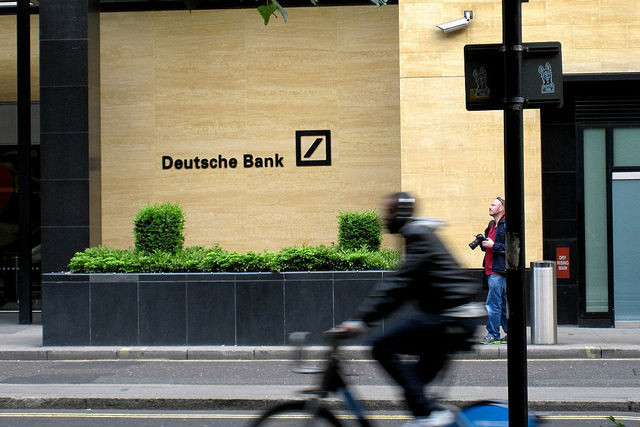The regulator, BaFin, said on Monday that this was the first time it had made such an appointment related to money-laundering. The move comes as European regulators step up their scrutiny of banks’ dealings with their customers following a series of scandals.
The head of Danske Bank, Denmark’s biggest, resigned last week after an investigation showed that many of the €200bn (£180bn) of payments through its small Estonian branch were suspicious.
Last year, Deutsche Bank was fined nearly $700m (£530m) for allowing money-laundering. Germany’s biggest bank said in a statement that it agreed with BaFin it needed to improve its processes to properly identify clients.
“We have the strong commitment to operate within regulatory-compliant practices for the identification of our clients,” Deutsche Bank said. Neither BaFin nor Deutsche Bank gave details of the new measures the bank would adopt.
No new scandal or case triggered BaFin’s move, two people with knowledge of the matter told Reuters, speaking on condition of anonymity.
In August, Reuters reported that Deutsche Bank had uncovered further shortcomings in its ability to fully identify clients and the source of their wealth. BaFin said it had appointed KPMG as its special representative for a three-year period to assess Deutsche Bank’s progress.
The intervention is another blow to the reputation of one of Europe’s biggest banking names. Deutsche Bank has made management changes and announced a strategic overhaul that includes thousands of job cuts and scaling back its global investment bank as it battles to recover from three consecutive years of losses.
In January 2017, Deutsche Bank agreed to pay US and British regulators $630m in fines over artificial trades between Moscow, London and New York that authorities said were used to launder $10bn out of Russia. The US Federal Reserve fined the bank an additional $41m in May 2017 for failing to ensure its systems would detect money-laundering.
